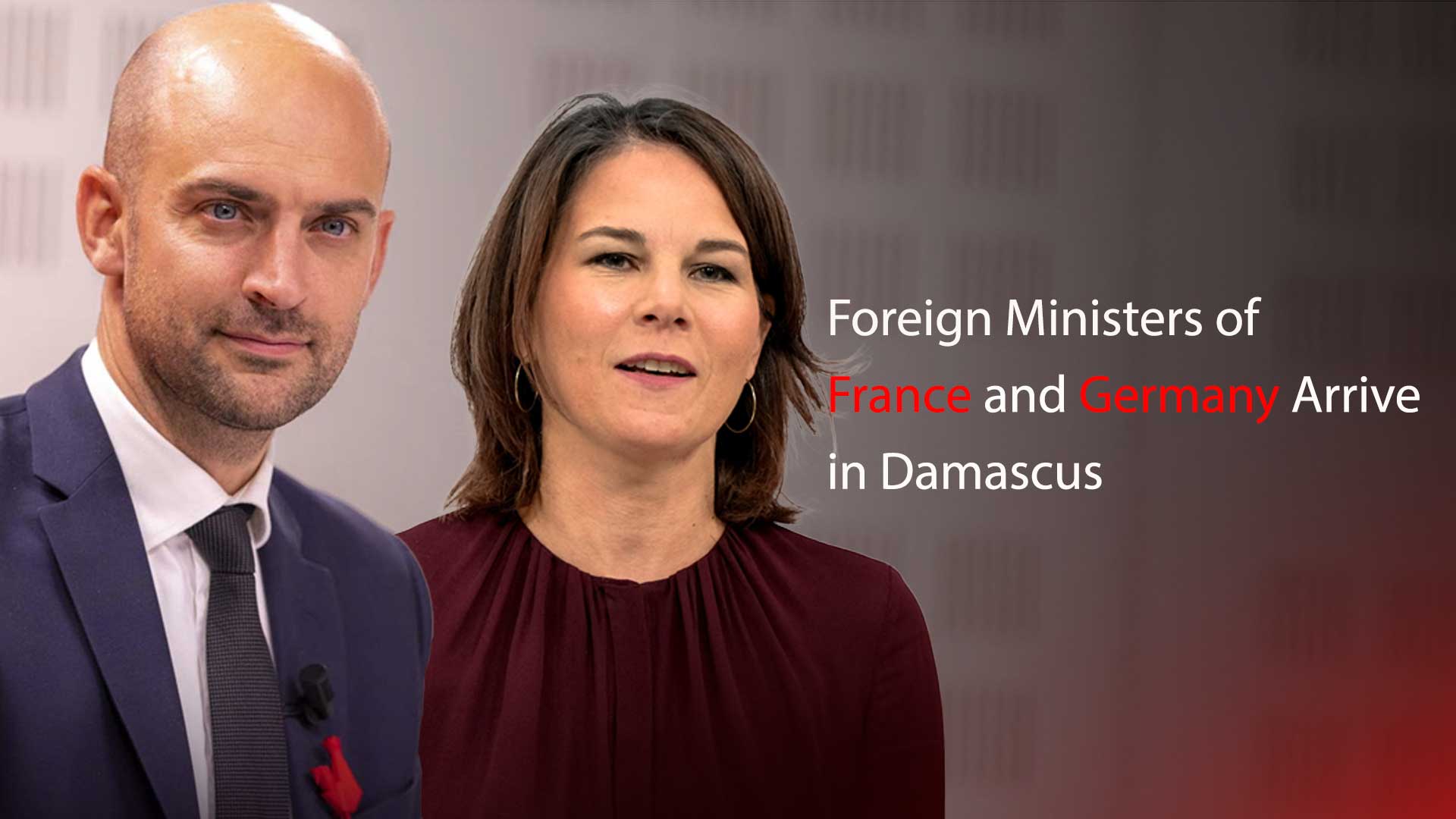French, German Foreign Ministers visit Damascus in post-Assad diplomatic mission
This signifies the first visit by French and German foreign ministers to Damascus since the regime change.

Jan. 3, 2025
ERBIL (Kurdistan24) - French Foreign Minister Jean-Noël Barrot and German Foreign Minister Annalena Baerbock arrived in Damascus on Friday, indicating an important diplomatic engagement with Syria's new leadership, according to the Agence France-Presse (AFP).
The two European foreign ministers are scheduled to jointly meet with Ahmed Al-Sharaa, the Commander-in-Chief of Syria's new administration and former leader of the Hayat Tahrir al-Sham (HTS) forces that ousted President Bashar al-Assad in December.
This signifies the first visit by French and German foreign ministers to Damascus since the regime change.
Speaking ahead of the visit, Baerbock highlighted Germany's commitment to assisting Syria to restore its status as "a functioning state with full control over its territory."
While acknowledging "skepticism" about Sharaa's HTS forces, she underlined the significance of backing the Syrian people at this crucial juncture.
The German minister also urged the new administration to refrain from revenge against population groups, guarantee timely elections, and uphold secular education and judicial systems.
The French Foreign Minister Barrot, speaking from the French embassy in Damascus, portrayed the prospects for Syria's future as both "real" and "fragile," expressing hope for a "sovereign, stable and peaceful" nation.
The diplomatic mission comes amid concerns over the latest policy changes by the new Islamist-led government, including contentious amendments to the educational curriculum.
These amendments include the exclusion of certain poetry related to women and love, changes to ancient history courses, and amendments to the national anthem in school textbooks.
The Assad family's 53-year rule over Syria came to an end on Dec. 8, 2024, when opposition forces led by HTS entered Damascus and deposed the regime.
The dramatic change in leadership comes after a devastating civil war that started in 2011 as part of the Arab Spring protests.
This high-level European diplomatic engagement suggests a possible change in Syria's international relations, though challenges remain concerning the new administration's Islamist orientation and its commitment to democratic reforms.
The visit signifies the European Union's careful approach to engaging with Syria's new leadership while encouraging for inclusive governance and secular institutions.